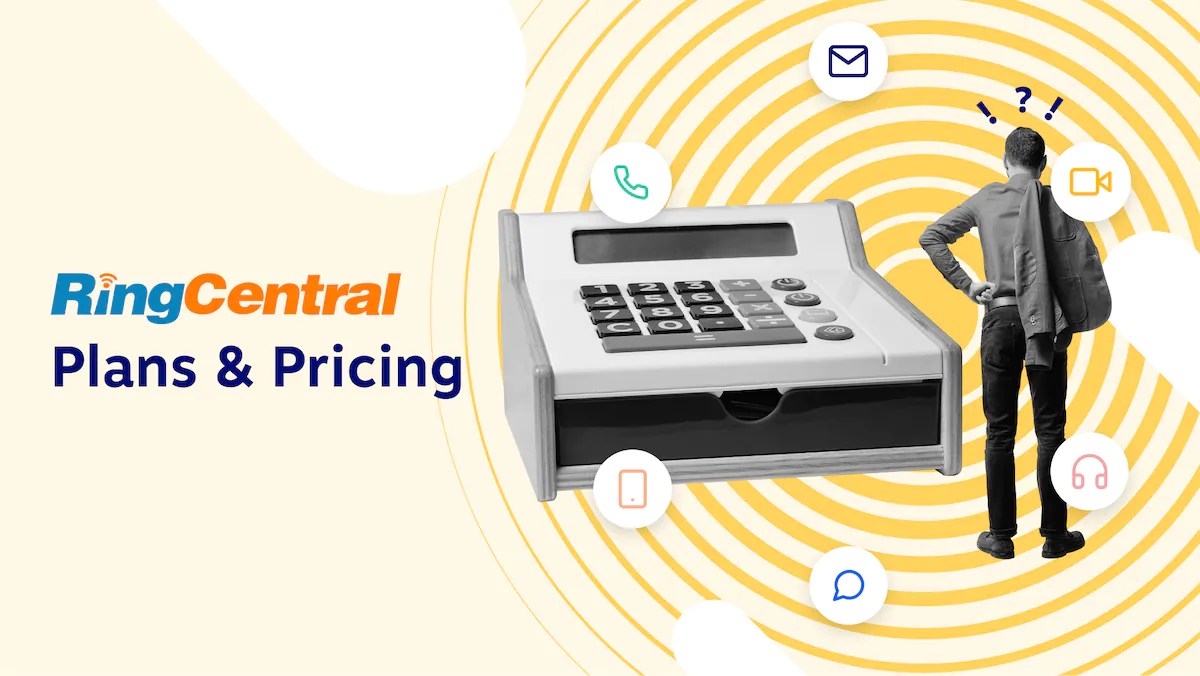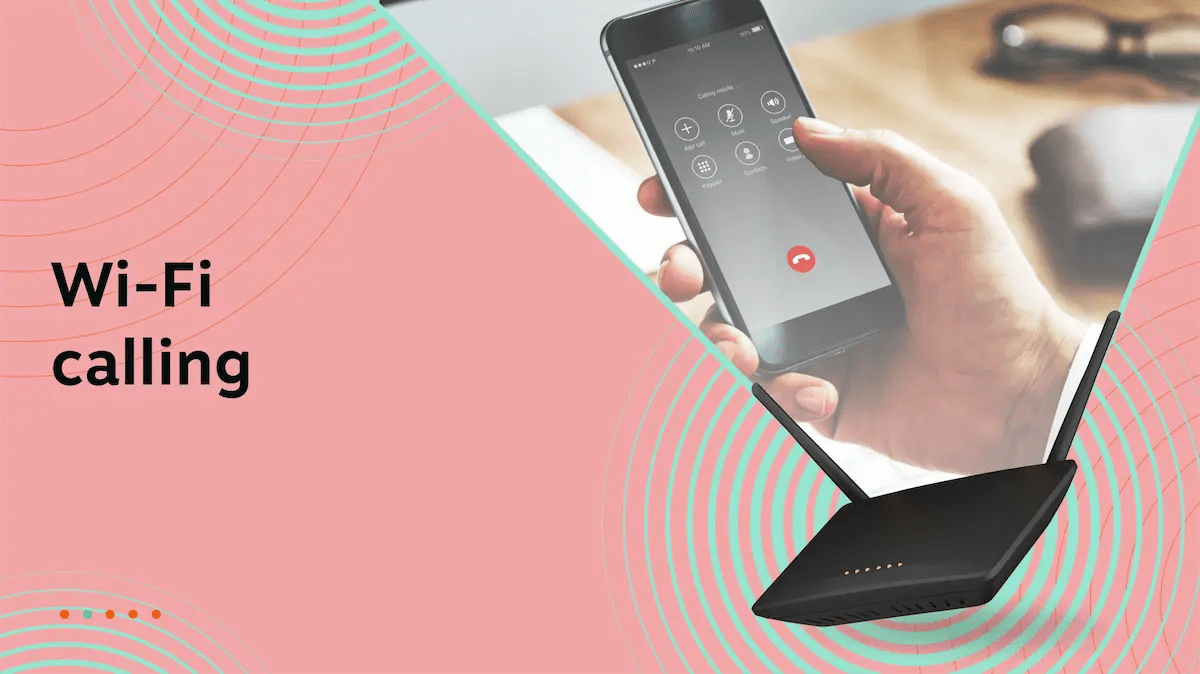OpenPhone has become a popular business phone system, especially for startups and remote teams, thanks to its affordability, mobile-first design, and user-friendly interface. But what happens when your team expands? This is where limitations can creep in. You need a communications solution that tackles your current business needs and scales seamlessly as your team grows. It’s time to think about OpenPhone alternatives.
With a vast array of options on the market, comparing features, pricing, and scalability across providers can be overwhelming. We’ll dive into popular alternatives to OpenPhone and how these competitors stack up to help you choose the best business phone system for your growing business.
Why Businesses Choose OpenPhone
Let’s start by understanding why OpenPhone attracts small businesses:
- Budget-friendly: OpenPhone’s pricing starts at $15/month per user, making it ideal for startups and entrepreneurs on a tight budget.
- Mobile-first design: Built for remote teams and on-the-go employees, OpenPhone excels with its mobile app functionality.
- Simple setup: Easy to configure and use right out of the box, OpenPhone appeals to users who aren’t particularly tech-savvy.
While OpenPhone is known for its affordability, mobility, and ease of use, it might lack features for growing companies. Let’s explore some scenarios where you might consider a more robust alternative.
When to Look for in OpenPhone Alternatives
Here are some signs that it might be time to search for a better business VoIP provider than OpenPhone:
- Limited hardware support: Unlike many competitors, OpenPhone only offers software-based calling, meaning you can’t use traditional VoIP-ready office phones.
- Questionable call quality: Reviews of OpenPhone’s service mention dropped calls, echoes, and poor audio quality — not ideal for critical customer interactions.
- Feature limitations: OpenPhone lacks video calling, basic call routing options, call monitoring, and advanced call center functionalities.
- Integration gaps: Compared to competitors, OpenPhone has fewer built-in integrations with popular business apps.
- Scalability concerns: As your company grows, its communication needs will diversify. OpenPhone might not accommodate requirements like hard phone compatibility.
- No support number: OpenPhone doesn’t currently have a dedicated customer support number, not ideal for time-sensitive issues.

If you encounter any of these limitations, it’s worthwhile exploring OpenPhone alternatives and other business communication tools designed to support the evolving needs of growing companies.
Top OpenPhone Alternatives
Here’s an at-a-glance view of the leading alternatives to consider:
| Solution | Key Features | Starting Price/User | Best For | Strengths |
|---|---|---|---|---|
| Nextiva | Voice, video, messaging, advanced call management, CRM integrations, and customizable reports | $30/month | Scaling businesses that need reliability and enterprise-grade features | Reliability, features |
| Aircall | Cloud phone system, call routing, monitoring, voicemail, and SMS capabilities | $30/month | Lean support and sales teams looking for simplicity | Simplicity, ease of use |
| Grasshopper | Virtual business phone service, basic call management, and unlimited US/CA calling | $14/month | Solopreneurs or micro-businesses on a tight budget | Affordability |
| Dialpad | Cloud business phone system with voice, video, and messaging | $15/month | Remote-first companies that need mobile-centric solutions | Mobile-centric |
| GoTo Connect | Cloud PBX phone system with call routing, SMS, and integrations | $27/month | Mid-size companies that need to customize their workflows | Scalability, workflows |
| RingCentral | Robust voice, video, and messaging with advanced call management | $20/month | Larger growing companies that need enterprise-level capabilities | Unified platform, API |
| Vonage | Business phone system with basic call management and voicemail transcription | $13.99/month | Budget-conscious SMBs that need just the essential features | Integrations, value |
| Google Voice | Cloud-based virtual phone number and call and text forwarding | Free | Microbusinesses and solopreneurs on extremely tight budgets | Free, basic features |
| Ooma Office | Cloud business phone service with virtual PBX capabilities | $19.95/month | Small companies that need basic, low-cost solutions | Low upfront cost |
| CloudTalk | Cloud-based business phone system with call routing and IVR menus | $25/month | Very small teams that need easy plug-and-play options | Easy setup, drag-and-drop |
Now, let’s take a closer look at how each one stacks up against OpenPhone.
1) Nextiva

For growing SMBs, Nextiva is probably the closest direct replacement for OpenPhone in terms of capabilities and scale. Let’s look at some of the key advantages of choosing Nextiva as your business phone system:
- Reliable uptime: Nextiva has 99.999% uptime and redundant call routing, so you can expect crystal clear call quality without dropped calls.
- Future-proof scalability: It scales easily, whether your company has five employees or more than 5,000. There’s no need to replace it as your business grows.
- Enterprise-grade features: It offers intelligent call routing, automation, dialers, unlimited calling, advanced IVR menus, and real-time analytics. You’ll get everything you need to optimize workflows.
- CRM integrations: Its native CRM integrations with Salesforce, Zendesk, and more will sync your contacts and call data.
- Flexible plans: Nextiva offers mix-and-match voice, video calls, messaging, and contact center plans to meet your needs. The company’s cost-effective pricing scales affordably.
Best for: Nextiva is the leading unified communications service provider for growing teams that need the reliability and advanced features OpenPhone lacks. Nextiva brings enterprise-level capabilities but is easy to use.
2) Aircall

Aircall is a user-friendly cloud-based phone system designed for modern teams. As a virtual phone system, Aircall gets attention because of its simplicity and streamlined experience.
Here are some of the key advantages of choosing Aircall as your company’s phone system:
- Its interface is intuitive: Aircall’s drag-and-drop workflows and configurable dashboards are very easy to use.
- It’s built for service teams: It has helper features such as canned responses and dispositions to optimize support workflows, plus add-ons like caller IDs to enable personalized service.
- It’s got SMS capabilities: Its SMS capabilities enable your employees to send and receive text messages from the dashboard to engage your customers.
- Its porting tools are easy to use: It provides simple tools for porting your existing business numbers over to its system.
- Its pricing plans are pay-as-you-go: Aircall has no annual contracts. And it allows you to scale or cancel its service at any time.
Best for: Aircall is an ideal choice for lean service and sales teams that want simple solutions. Its user-friendly design balances capable basic features comparable to OpenPhone’s.
3) Grasshopper

If keeping costs ultra-low is your top priority, you might find Grasshopper appealing. It offers a basic business phone service starting at just $14/month per phone number. Here are the key details about its service:
- Incredibly low pricing: Grasshopper has some of the most affordable rates among VoIP providers, which makes it ideal for bootstrapped startups.
- No per-user fee: Its price is calculated per phone number, so you only pay for the service you need.
- Essentials-only focus: It provides a straightforward virtual phone service with basic call forwarding and management.
- No proprietary hardware: It allows you to bring your own devices with you. Your employees can use their existing cell phones or desktop phones.
- Unlimited calling: Grasshopper offers unlimited calling within the United States and Canada, which keeps your costs predictable.
Best for: Grasshopper suits solo entrepreneurs and micro-businesses who need basic phone services on tight budgets.
4) Dialpad

Dialpad is a modern business VoIP solution built mobile-first for remote teams. Its standout features include:
- Top-notch mobile apps: Dialpad’s streamlined iOS and Android apps allow for effortless calling and collaborating on the go.
- Video conferencing: Dialpad’s service allows your employees to make native video conference calls from the same workspace.
- Team messaging: Its service includes in-app messaging for quick conversations with colleagues.
- AI-powered features: Its AI-powered capabilities include real-time transcription, talk detection, and auto-generated notes.
- 14-day free trial: Dialpad allows you to test-drive its service risk-free before committing to it.
Best for: For distributed teams and remote workers, Dialpad is a high-quality mobile-centric alternative comparable to OpenPhone.
5) GoTo Connect

GoTo Connect strikes a balance between simplicity and customization, making it an acceptable choice for growing mid-size companies. Here are some key points about its offerings:
- Intuitive admin portal: GoTo Connect has an easy-to-use web interface to manage users, call routing, IVRs, and more.
- CRM integrations: Its native integration with Salesforce helps sync contacts and information.
- Voicemail transcription: Its voicemail transcription service converts voicemails to text for quick reviewing.
- Auto attendants: With GoTo Connect’s auto attendant service, you can set up custom interactive voice menus to route callers seamlessly.
- On-demand expansion: It allows you to scale across locations and teams while maintaining robust support.
Best for: GoTo Connect sits in the middle ground between basic services and enterprise solutions. It combines the simplicity of OpenPhone with more tailored workflows.
6) RingCentral

RingCentral is one of the long-standing leaders in business VoIP. This provider has a robust enterprise-grade platform. Here are some of the key advantages of choosing RingCentral as your business phone system as an alternative to OpenPhone:
- Unified platform: It provides an all-in-one system for your business’s voice, video, messaging, and contact center needs.
- Enterprise integrations: It offers seamless integrations with Microsoft, Slack, Google, Salesforce, and more.
- Custom app development: It has an open API to build custom apps tailored to your workflows.
- Helpful customer support: RingCentral provides technical and customer support via phone, chat, and knowledge base.
Best for: For larger enterprises that need a future-proof platform, RingCentral is a choice that’s trusted by global brands.
7) Vonage

Vonage is probably the most recognized consumer VoIP telephony brand extending into the business market. Here are some key details about it:
- Numerous plans: Vonage has a wide range of plans, so you can mix and match features to fit your needs and budget.
- Popular number choices: It makes toll-free, local, and vanity phone numbers available to its customers.
- Voicemail transcription: Its transcription service converts voicemail messages to text for quick reviewing.
- Helpful integrations: Its phone service comes bundled with Google, Microsoft, and Salesforce integrations.
- Flexible upgrades: Vonage allows you to upgrade your plan easily as your business scales.
Best for: Vonage’s plans offer a flexible starting point for SMBs seeking business phone systems with only the essential features at a competitive price.
8) Google Voice

If you’re bootstrapping and your funds are extremely limited, Google Voice provides a basic free business phone solution. Here are some key points about it:
- No fees: Google Voice charges no monthly fees. You pay only for outbound calling.
- Call and text forwarding: Its system redirects calls and texts to your cell phone or landline.
- Voicemail transcription: Its transcription service turns your voicemail messages into text.
- Customized greeting: With Google Voice, you can set a custom voicemail greeting for your business.
- Global reach: You can use Google Voice anywhere if you have an internet connection.
Best for: Google Voice’s features are limited, but it offers solopreneurs a free way to establish a business number.
9) Ooma Office

Ooma Office stands out because it delivers VoIP on a budget. Here are some of the key advantages of choosing Ooma Office as your business phone system:
- Low upfront costs: Ooma Office doesn’t require you to pay for expensive PBX hardware. It uses your existing network.
- Virtual PBX features: Its virtual PBX features include extensions, auto attendants, ring groups, and more.
- No new devices: It allows you to bring your own devices with you. Your employees can use their regular desk phones or mobile devices.
- Straightforward pricing: There are no hidden fees.
- Good value: Ooma Office’s phone plans include more features than equivalent competitors’ similarly priced plans do.
Best for: For thrifty small businesses, Ooma Office hits the sweet spot between cost and capabilities.
10) CloudTalk

CloudTalk is a cloud-based call center solution designed to improve customer interactions. The platform makes it easy for small customer support teams to get set up with business phones in minutes. Here are the primary advantages of choosing CloudTalk as your business phone system:
- Fast setup: CloudTalk’s intuitive wizard allows you to set up call recording and routing in under five minutes.
- No new devices: It works with your existing mobile and desk phones.
- Toll-free numbers: It includes a toll-free number in all its pro plans.
- Drag-and-drop builder: Its visual editor simplifies your call workflow creation.
- Affordable plans: CloudTalk’s pricing starts at just $15/month per user. You can pay monthly or annually.
Best for: For teams with simple needs, CloudTalk delivers a fast and frustration-free option that’s comparable to OpenPhone’s.
Key Takeaway on Best OpenPhone Alternatives
- Nextiva: Feature-rich, with advanced integrations and scalability, but slightly more expensive.
- Aircall: User-friendly, built for service and sales teams, but may be pricier.
- Grasshopper: Very affordable, good for solopreneurs, but with limited features.
- Dialpad: Mobile-centric, with real-time analytics, but has a steeper learning curve.
- GoTo Connect: Good for geographically dispersed teams with scalability and customization options, but may be pricier.
- RingCentral: Feature-rich and reliable, but potentially expensive and complex.
- Vonage: Affordable and widely available, but call quality may vary.
- Google Voice: Free, basic features, not for larger business use.
- Ooma Office: Affordable for small businesses, but limited features.
- CloudTalk: Feature-rich and easy to set up, not an enterprise solution.
Choosing the Best OpenPhone Alternative
We’ve outlined several helpful questions for you to ask potential OpenPhone alternatives when comparing business phone platforms.
It also helps to align your organization’s needs so you can select the right communications platform to support your growth. Here are some essential questions to consider when comparing business phone systems:
- Usage and growth plans: How many team members do you need to support now, and what’s your projected growth in the next few years? What features will you require (basic call routing vs. advanced contact center features)?
- Budget: Factor in total costs based on users, features, minutes needed, and toll-free numbers. Does the service include support, and what are the response times? Are there any hidden fees?
- Call quality: Check reviews and trial offers to assess call clarity. Look for providers with redundant infrastructure to minimize downtime. Consider carrier-grade infrastructure if rapid business growth is anticipated.
- Device compatibility: Does the system work with your existing equipment (desk phones, mobile devices) or require proprietary hardware?
- Integrations: Does the provider’s phone system integrate with your must-have business apps, such as your CRM, help desk, and workflows? Is there an added cost or fee to use third-party integrations?
- Customer support: Are the provider’s support reps knowledgeable and easy to reach? Is 24-7 phone, chat, and online support included in the provider’s phone plans? Are self-service options and tutorials available?
Selecting your VoIP service provider deserves careful evaluation. Keep these aspects in mind as you compare options.

Switching from OpenPhone to Nextiva Is Seamless
If, after reviewing all the OpenPhone alternatives, you determine that Nextiva most closely aligns with your needs, making the transition is a breeze.
Here are a few key advantages to switching to Nextiva:
- Number porting is simple: Nextiva ports your numbers from OpenPhone or any other phone carrier. You’ll get confirmation when your port is complete and good to go.
- The phone system works with your hardware: Bring your own VoIP phones or use Nextiva’s high-quality devices. We can even walk you through resetting and configuring IP phones.
- You get dedicated support: Get one-on-one onboarding and ongoing amazing service from industry experts. For a larger deployment, we offer professional services, too.
- The scalability is future-proof: Scale to thousands of users without replacing your phone system. You’ll always have softphone and hardphone flexibility.
- You get advanced capabilities: Unlock enterprise-grade calling features to optimize your workflows. Easily set up a virtual call center for sales or support teams and keep everyone productive.
Switching to Nextiva gives you the peace of mind that comes with choosing a trusted industry leader that has reliable infrastructure and offers stellar 24-7 support.
The right multi-line phone system lays the foundation for reliable customer communication and optimized internal workflows. Don’t settle for a basic solution that just gets by.
Nextiva is the perfect technology partner for companies that want to access the modern capabilities their teams need to perform their best work, deliver exceptional customer experiences, and scale without limitations.
Business VoIP service done right.
Integrate secure phone service, SMS, video, and team chat in ONE platform.

















 VoIP
VoIP 

















